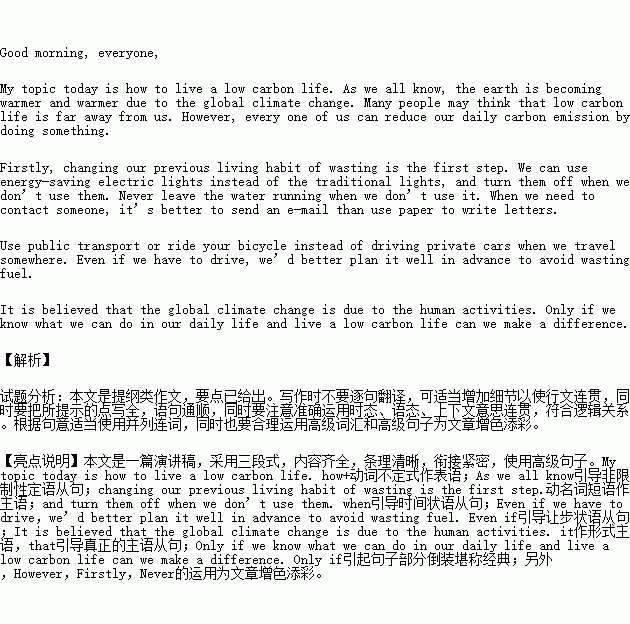题目内容
假如你正在参加学校举办的一个英语演讲比赛,就如何应对全球变暖这一话题发表自己的见解,号召同学们过低碳生活,为减少二氧化碳(CO2)排放做贡献。请就这一话题写一篇演讲稿,陈述你自己的观点。演讲稿应包括以下内容:
1.节能减排,低碳生活,人人可为;
2.改变以往的家庭生活习惯(用电,用水等);
3.出行使用公共交通或骑自行车;
4.……
注意:1.词数100左右;
2.可适当增加细节内容,以使行文连贯;
3.开头已经给出,但不计入总词数。
参考词汇:low carbon life低碳生活;carbon emission碳排放
Good morning,everyone,
My topic today is how to live a low carbon life. As we all know,the earth is becoming warmer and warmer due to the global climate change. __________________________
_______________________________________________________________________________
_______________________________________________________________________________
_______________________________________________________________________________
_______________________________________________________________________________
_______________________________________________________________________________
_______________________________________________________________________________
_______________________________________________________________________________
_______________________________________________________________________________
_______________________________________________________________________________

